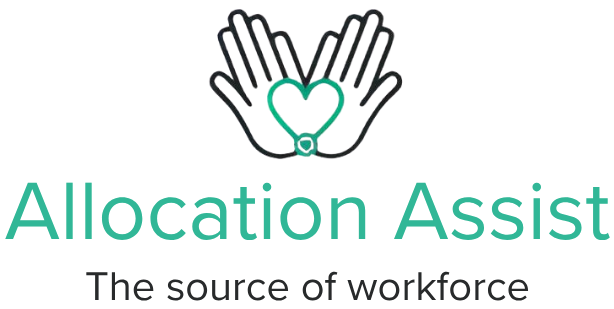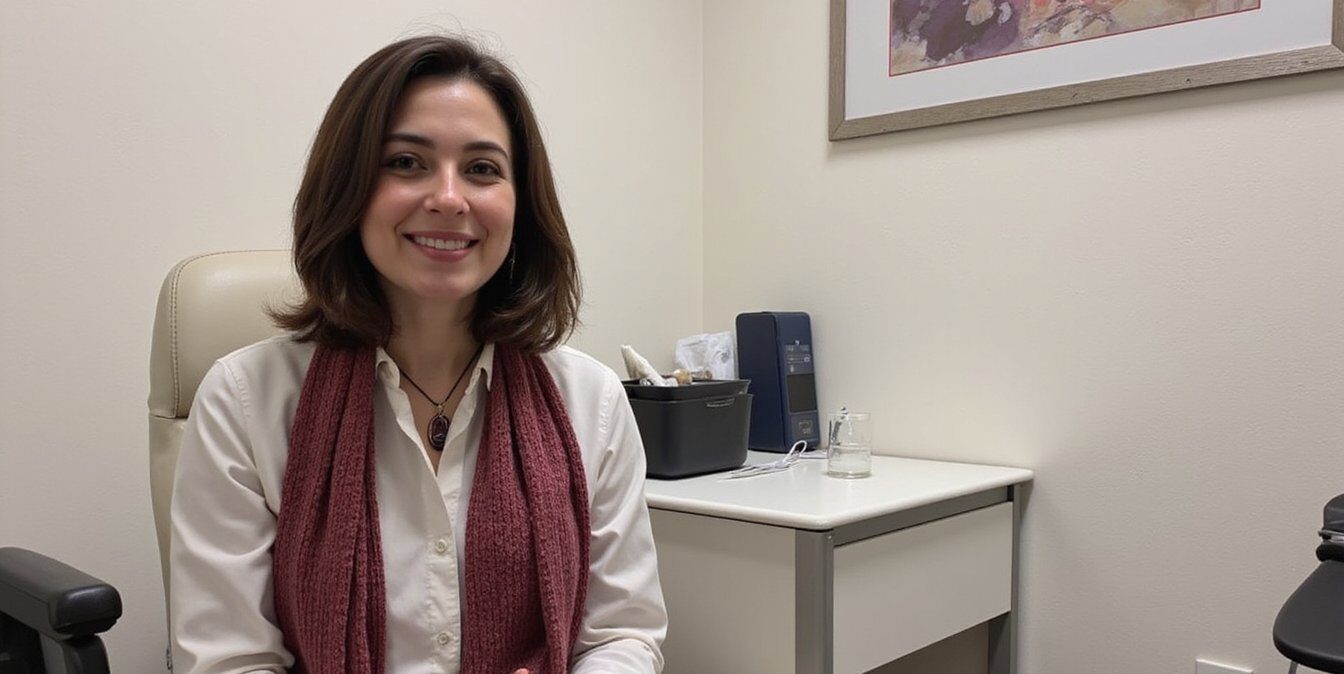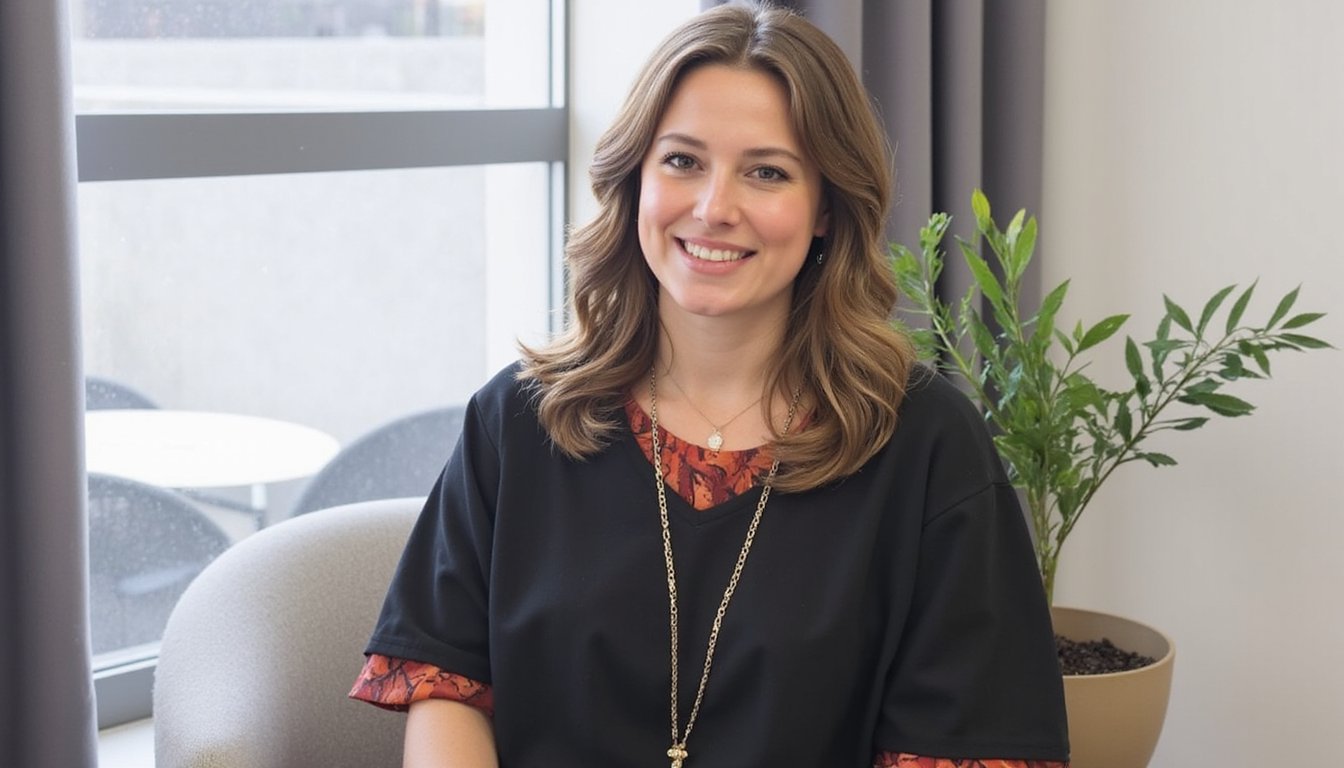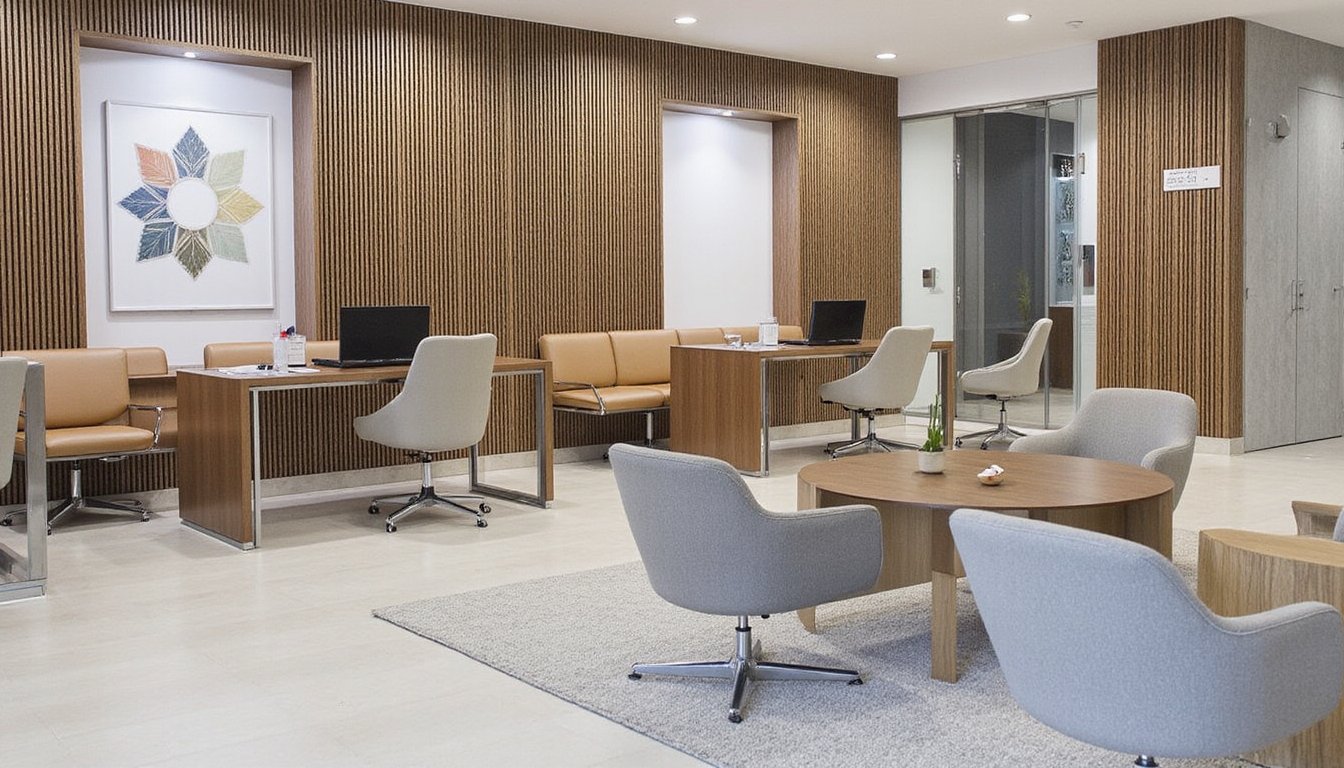Dubai’s private healthcare is worth your investment, offering exceptional value through high-quality medical facilities rated 4.8/5 and 214 JCI-accredited centers. You’ll find tiered options starting at AED 500 for basic plans, while premium coverage reaches AED 35,000+ annually. Local plans provide cost-effective solutions from AED 320/year, though international plans offer wider coverage. Understanding your specific needs and long-term financial planning will help you maximize Dubai’s healthcare benefits and avoid hidden costs.
The Real Cost Breakdown of Dubai’s Private Healthcare
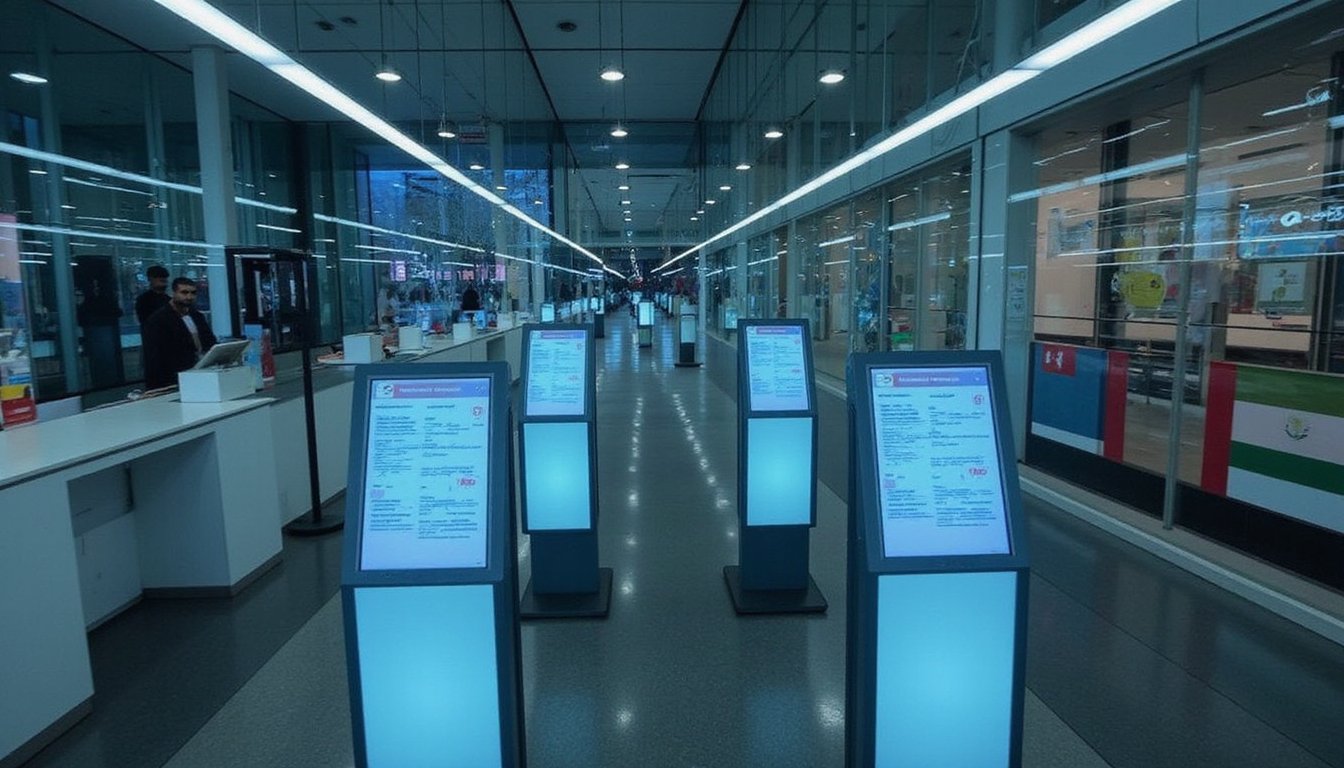
Three distinct tiers define Dubai’s private healthcare costs: basic plans starting at AED 500 annually, mid-range coverage from AED 3,000-7,000, and premium packages reaching AED 35,000+. Your cost analysis needs to factor in your age, family size, and required coverage scope. Geographic considerations are important since Dubai healthcare costs tend to be higher compared to other emirates. The growing insurance market is expected to reach USD 13.6 billion by 2030. Health Card fees start at AED 120 for residents under 10 years old.
For a detailed healthcare expenses breakdown, you’ll face co-payments of 20% for inpatient care (capped at AED 500 per visit) and 25% for outpatient services (maximum AED 100 per visit). The new 2025 Basic Health Insurance Plan, priced at AED 320 annually, provides mandatory coverage including chronic conditions without waiting periods. Family coverage varies greatly, with basic plans costing AED 3,500-5,000 for couples and AED 8,000-12,000 for families of four.
Comparing Local Vs International Insurance Plans
When choosing health insurance in Dubai, you’ll face a key decision between local and international coverage plans. Local plan benefits include lower premiums, with individual plans ranging from AED 3,000-4,000 annually, compared to typically higher-priced international options. You’ll also get standardized co-pay caps and immediate pre-existing condition coverage with a 6-month moratorium. With support from knowledgeable insurance advisors, you can receive personalized recommendations to help navigate these choices effectively. Without proper coverage, you could face hefty fines ranging from AED 500 to AED 150,000 for non-compliance with Dubai insurance laws. The new unified system ensures universal healthcare access across all seven emirates starting January 2025.
However, international plan drawbacks include steeper costs due to lacking UAE network discounts. While they offer global hospital access and customizable add-ons, they’re often stricter with pre-existing conditions. Consider that local plans limit you to UAE-based networks but provide cost-effective coverage starting at AED 320 annually for basic government-mandated insurance. Your choice should ultimately depend on whether you need multi-region coverage and specific add-ons like dental or maternity care.
Must-Know Insurance Requirements for UAE Residency
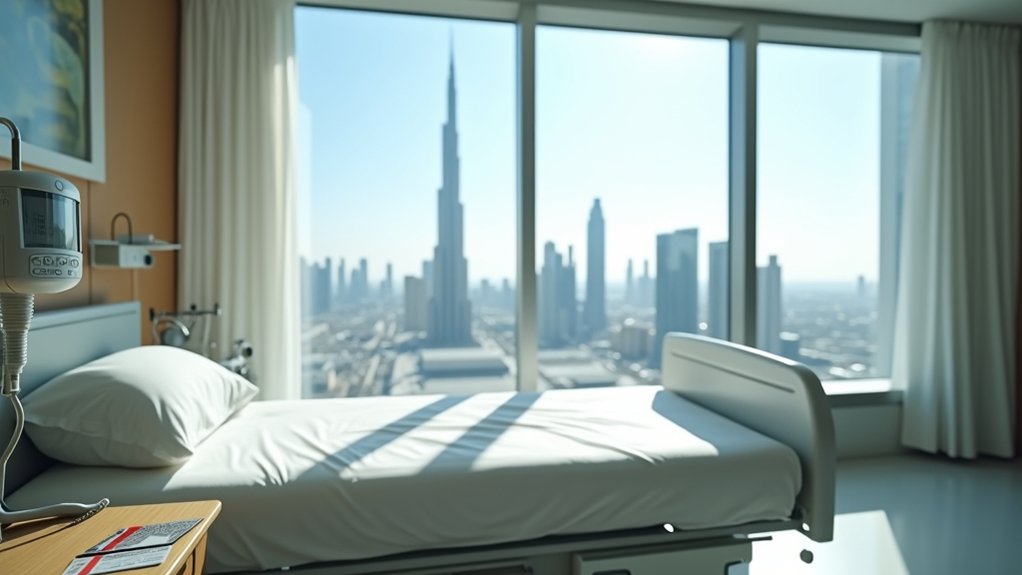
Starting January 1, 2025, Dubai’s new unified health insurance mandate requires all private-sector employees, freelancers, and domestic staff to secure coverage before obtaining or renewing residency permits.
When selecting from available insurance types, you’ll need to take into account these critical requirements:
- Basic coverage starts at AED 320 annually, with enhanced tiers up to AED 400
- Your policy must be registered through the MOHRE-ICP Unified Health-Insurance Gateway
- Only DHA- or DOH-approved plans qualify for residency permits
- Coverage extends to dependents and includes pre-existing conditions without waiting periods
Policies can be purchased through the DubaiCare Network and other approved providers. If you’re over 64, you’ll face additional medical disclosure requirements. While Emiratis are exempt, all other residents must comply or face automatic visa blocks. Non-compliance results in significant penalties of AED 500 per uninsured employee monthly in Dubai. The two-year policy validity offers prorated refunds if your residency ends early, helping optimize your healthcare costs. For inpatient care, residents should expect a 20% co-payment with a maximum cap of AED 500 per visit.
Quality Standards in Dubai’s Private Medical Facilities
Dubai’s private medical facilities offer you world-class care through their cutting-edge diagnostic equipment and modern infrastructure, boasting an impressive 4.8/5 average service quality rating at leading institutions like International Modern Hospital. Your access to internationally accredited hospitals, including Mediclinic and American Hospital Dubai, guarantees treatment standards matching global healthcare benchmarks while maintaining DHA’s strict quality control measures. The availability of English-speaking professionals ensures clear communication between patients and healthcare providers during consultations and procedures. With mandatory insurance requirements for all residents, accessing private healthcare has become more feasible for expatriates living in Dubai. You’ll benefit from specialized treatment centers featuring thorough services in cardiology, bariatric surgery, and critical care units, supported by advanced digital health integration through the Nabidh system for seamless patient record management. The continuous development of healthcare infrastructure has attracted eminent medical experts from around the globe, establishing Dubai as a premier destination for quality private healthcare.
Modern Equipment and Technology
Through substantial infrastructure investments and rapid technological adoption, private healthcare facilities in Dubai have transformed into cutting-edge medical centers. You’ll find advanced equipment across 4,922 facilities, staffed by 58,788 medical professionals who utilize state-of-the-art technology for diagnosis and treatment. Among these facilities are 53 major hospitals that serve as flagship institutions for medical innovation and specialized care.
Key technological advantages you can expect:
- Telemedicine integration enabling remote consultations and diagnostics
- Robotic surgery capabilities in high-volume specialty centers
- AI-driven diagnostic tools for faster test results and analysis
- Advanced imaging equipment across 20 diagnostic centers in Dubai
These investments translate to faster diagnoses, more precise treatments, and better health outcomes. With 26,279 new facility registrations in 2023 alone, you’re gaining access to an expanding network of technologically advanced healthcare options, though this sophistication does contribute to higher treatment costs.
International Medical Certifications
Beyond advanced technology, you’ll find Dubai’s private healthcare facilities operating under rigorous international quality standards. Most facilities maintain Joint Commission International (JCI) accreditation, which guarantees high-level patient safety protocols and quality care delivery. Healthcare compliance follows a four-phase cycle, with facilities showing peak performance during inspections and maintaining stable quality levels afterward. The UAE leads the region with 214 JCI-accredited facilities as of 2023. Medical facilities with ISO certification demonstrate standardized operational control across all their procedures and quality management systems.
Many facilities also hold ISO 13485 certification for medical device management, demonstrating their commitment to global quality standards. These international accreditation markers not only validate the quality of care you’ll receive but also drive continuous improvement in service delivery. For expats, this means you’re accessing healthcare that meets stringent global benchmarks, with facilities regularly monitored for sustained compliance and safety standards across multiple certification cycles. Healthcare quality professionals with CPHQ certification are increasingly sought after by these facilities to maintain their prestigious accreditations.
Specialized Treatment Success Rates
Private healthcare facilities in Dubai demonstrate exceptional quality standards through systematic oversight and consistent performance metrics. The DHA’s facility rating system guarantees you’ll receive high-quality specialized treatment through rigorous compliance monitoring and regular evaluations.
Success rates at private facilities are maintained through:
- Standardized benchmarks across all licensed providers, with 49% of private insurance funds directed to hospital-based specialized care
- Four-phase compliance cycles that drive continuous quality improvement
- Multi-cycle accreditation processes that sustain consistent performance levels
- Capital investments in advanced medical infrastructure and expertise
With over 2.3 million patients served in 2019, Dubai’s private healthcare facilities maintain impressive specialized treatment success rates through systematic quality control, substantial infrastructure investment, and strict regulatory oversight. Your treatment outcomes are protected by thorough governance frameworks that guarantee consistent service excellence.
Hidden Expenses and Out-of-Pocket Considerations
While your employer’s basic health plan may cover essential care, you’ll likely face significant out-of-pocket expenses through deductibles that can reach AED 500-1000 per visit and annual coverage limits. Emergency care coverage often masks unexpected follow-up costs, with premium hospital stays running up to AED 24,000 per night. You’ll need to carefully consider supplementary insurance for non-covered treatments like dental work, maternity care, and international coverage, which are typically excluded from standard policies but can represent substantial unexpected expenses.
Deductibles and Annual Limits
Selecting the right deductible level for your Dubai private health insurance creates a direct impact on your monthly premiums and potential out-of-pocket expenses. Your deductible choices can greatly affect your financial planning, with higher deductibles offering lower monthly premiums but requiring more upfront costs for care.
Consider these critical factors when evaluating deductible options and annual limits:
- A $20,000 deductible reduces monthly premiums to $310, compared to $1,010 for zero deductible plans
- Moving from a $20,000 to $10,000 deductible only increases premiums by $11 monthly
- Annual benefit limits, like BUPA’s $4.4M cap, protect against catastrophic expenses
- Lower deductibles increase premiums considerably $603 vs $718 for $1,600 vs $400 deductibles
Carefully weigh these numbers against your expected healthcare needs and risk tolerance.
Emergency Care Surprise Costs
How effectively you manage emergency care costs in Dubai can make or break your financial security, even with insurance coverage. You’ll face substantial out-of-pocket expenses if you’re unprepared for emergency billing practices and network limitations.
| Cost Factor | Financial Impact |
|---|---|
| Uninsured ER Stay | AED 3,000-10,000/night |
| Coinsurance Cap | AED 700 annually |
| Basic Prescriptions | AED 100-500/course |
| Network Restrictions | Full cost if out-of-network |
| Missing Pre-auth | 100% patient responsibility |
As an uninsured patient, you’ll pay full rates immediately for emergency services, with private hospitals charging premium fees. Even with insurance, you’re still responsible for 20% coinsurance under the Essential Benefits Plan, though it’s capped annually. Prior authorization requirements can lead to surprise costs if not secured, potentially leaving you fully liable for treatment expenses.
Non-Covered Treatment Expenses
Despite having health insurance in Dubai, you’ll encounter important non-covered expenses that can strain your budget if not properly anticipated. Your basic insurance plan likely excludes various treatments and services, requiring substantial out-of-pocket payments.
Key non-covered expenses you should prepare for:
- Preventive care and wellness services, which aren’t included in basic plans and require direct payment
- Non-covered medications and non-urgent ER visits, potentially costing full retail price
- Private hospital stays exceeding coverage limits, ranging from AED 1,000-3,000 per night
- Supplemental treatment needs like dental and vision care, requiring additional insurance plans averaging USD $816-1,089 annually
Understanding these exclusions is essential for financial planning, as uncovered procedures and waiting periods for pre-existing conditions can greatly impact your healthcare costs in Dubai.
Premium Healthcare Services and VIP Options
When seeking premium healthcare in Dubai, you’ll find an extensive network of VIP medical services designed specifically for high-net-worth expats and executives. The luxury amenities include private suites with gourmet meals, dedicated case managers, and priority scheduling for consultations and procedures. These tailored services often feature same-day diagnostics and personalized treatment plans.
JCI-accredited facilities like American Hospital Dubai offer cutting-edge technology, including robotic surgery and advanced imaging, while maintaining international treatment standards. You’ll benefit from English-speaking specialists and multi-disciplinary care teams coordinating your treatment. The VIP options include streamlined insurance processing, dedicated account managers, and discreet handling of sensitive medical matters. Digital health platforms enable remote consultations, while holistic wellness programs combine physical therapy, nutrition, and mental health support for thorough care.
Emergency Care Coverage and Response Times

Dubai’s emergency response system achieves an impressive 7.5-minute average response time, providing you with rapid access to medical care through a centralized 999 dispatch system. Your private health insurance must cover emergency services without pre-authorization requirements, as mandated by UAE healthcare regulations for expat coverage. With 133 ambulance points across Dubai and over 235,000 emergency responses annually, you’ll benefit from a robust emergency care infrastructure that includes both public and licensed private ambulance services.
Emergency Response Time Standards
Through significant operational improvements, Dubai’s emergency response system has achieved an impressive 7.5-minute average response time in 2023, marking a 13% reduction from the previous year. This efficiency stems from strategic investments in infrastructure and streamlined emergency protocols.
You’ll find Dubai’s emergency response standards are built on four key operational pillars:
- 133 strategically placed ambulance points across Dubai, including 12 new locations added in 2023
- 120-150 daily dispatches managed through a centralized system, guaranteeing ideal resource allocation
- 127 licensed ambulances staffed by certified professionals operating on 8-hour shifts
- Integration with 62 healthcare facilities and dedicated Emergency Coordination Points
These standards guarantee you’ll receive rapid emergency care through a network of specialized units, including mobile intensive care and helicopter services, regardless of your location in Dubai.
Insurance Pre-Authorization Requirements
Despite the streamlined emergency response system, steering through Dubai’s insurance pre-authorization requirements remains essential for controlling healthcare costs and ensuring coverage.
You’ll need to submit detailed medical plans and provider documentation for non-emergency treatments, as insurance approval isn’t guaranteed even for covered procedures. Pre-authorization processes require both you and your healthcare provider to complete specific form sections, with network-affiliated providers typically offering more efficient processing and lower out-of-pocket costs.
While emergencies don’t require prior approval, you must submit post-treatment documentation within 24 hours to validate your claim. Be aware that incomplete forms or delayed submissions can result in claim denials or reduced reimbursement. For ideal coverage, maintain copies of all submissions and consider using network providers who have established direct billing arrangements with insurers.
Strategic Coverage Options for Different Expat Profiles
While employer-provided health coverage meets basic EBP standards in Dubai, expats must strategically evaluate their healthcare needs against potential coverage gaps. Your coverage strategies should align with specific expat profiles and financial circumstances.
- High-income professionals earning >4,000 AED/month should consider Gold-tier plans with unlimited coverage, particularly if requiring specialist care or advanced therapies not covered by employer plans.
- Frequent travelers benefit from international providers like William Russell, offering global network access and repatriation coverage up to $61,700 USD.
- Budget-conscious expats can combine Pearl-tier plans ($51,000 USD coverage) with public health cards for basic care, though risking coverage limitations.
- Families requiring extensive care should prioritize enhanced networks and diagnostic add-ons, supplementing employer plans with dental and vision riders.
Cost-Benefit Analysis for Families Vs Individual Plans
When evaluating private healthcare options in Dubai, families and individuals face distinctly different cost structures that demand careful analysis. Family plan advantages include bulk discounts of 20-40% compared to individual policies, with typical costs ranging from AED 7,000-25,000+ annually. You’ll find family premiums average AED 3,750 per person versus standalone rates of AED 3,000-7,500.
Individual plan flexibility offers tailored coverage options and easier policy modifications, but you’ll miss out on shared risk pools. While you can customize add-ons like dental care and maternity benefits individually, family plans provide standardized coverage for all members. Consider that international coverage markedly impacts costs, with family premiums averaging USD 17,637 annually versus USD 5,687 for individuals. Your choice should balance cost efficiency against coverage flexibility.
Long-Term Financial Planning for Healthcare in Dubai
Long-term healthcare planning in Dubai requires strategic allocation of resources, with annual premiums ranging from AED 3,000 for basic local coverage to over AED 25,000 for thorough international family plans. To optimize your healthcare savings, you’ll need to balance immediate costs against future medical needs.
Consider these key factors for long-term budgeting:
- Start with a basic local plan (USD 118/month) and upgrade as your income grows
- Leverage hybrid options by combining health cards (AED 120) with private insurance for 50% public facility discounts
- Account for age-related premium increases, which can double or triple your costs over time
- Build an emergency fund specifically for potential coverage gaps or pre-existing condition exclusions that may develop
This strategic approach helps you maintain extensive coverage while maximizing your healthcare investment in Dubai.
Frequently Asked Questions
Can I Switch Insurance Providers Mid-Policy if I’m Unsatisfied?
You’ll face significant restrictions when attempting mid-policy insurance changes in Dubai. Most contracts lock you into annual terms, and switching providers mid-policy typically triggers financial penalties. If you’re employer-insured, you’ll need HR approval for any changes. Your best option is to wait until renewal time, when you can freely explore provider switching options without penalties. Self-employed expats maintain greater flexibility for policy changes than those on company plans.
Are Alternative Medicine Treatments Covered Under Standard Private Healthcare Plans?
Many standard private health plans in Dubai now cover alternative therapies, but coverage details vary considerably. You’ll typically find a AED 2,500 annual limit for treatments like homeopathy, ayurveda, and acupuncture. Be aware that treatment costs often include a 20% surcharge, and you’ll need to use approved network providers. Check your specific policy details, as some basic plans exclude alternative medicine coverage or require premium add-ons for these services.
How Quickly Can I Add Newborn Babies to Existing Family Plans?
You can add newborn coverage to your existing family plan within 30 days of birth, and most insurers process additions within 24-48 hours once you submit the required documentation. You’ll need to provide the birth certificate and parents’ Emirates IDs. Acting quickly is essential, as waiting beyond the 30-day window can result in out-of-pocket expenses. Most providers apply coverage retroactively once enrollment is complete, protecting you from initial medical costs.
Do Insurance Plans Cover Medical Expenses During Visits Back Home?
Most international insurance plans offer limited healthcare portability during home visits, but coverage varies considerably. You’ll typically get 14-60 days of annual home country coverage, with benefits capped at $5,000-$10,000. You’ll need to meet specific requirements, like maintaining international coverage for at least 5 months to qualify for 1 month of home coverage. Remember, this usually only covers emergencies and acute care, not routine treatments.
What Happens to My Coverage if I Lose My Job?
When you lose your job, your employer-provided health insurance typically ends immediately. To maintain coverage, you’ll need to act quickly with these options: 1) Purchase a private insurance plan through DubaiCare Network, 2) Enroll in ILOE insurance which provides up to 60% salary replacement (max Dh20,000/month), or 3) Check if you qualify for subsidized expat plans. Don’t wait – coverage gaps can leave you financially vulnerable for medical expenses.
